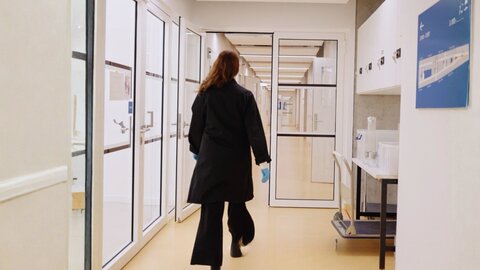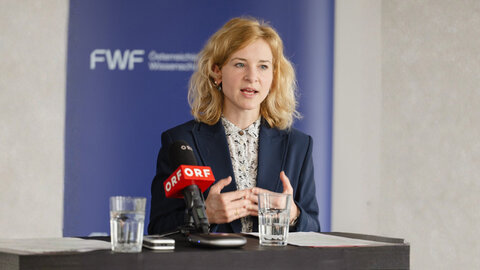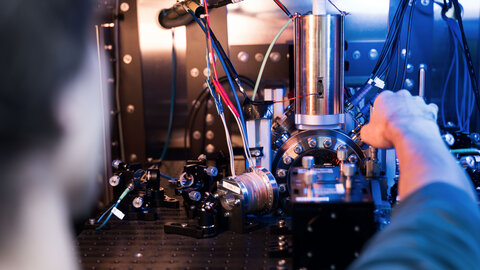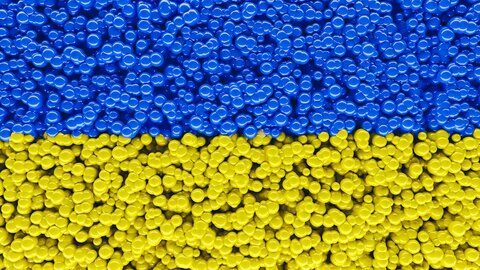FWF Funds 145 Outstanding Basic Research Projects

excellent=Austria: Emerging Fields in the final phase
In the the Emerging Fields program, the second excellent=austria funding program, ten consortia from a broad range of disciplines were shortlisted for the final selection in February 2024. The shortlisted interdisciplinary Emerging Fields teams will present their research approaches to an international jury in February 2024. The aim of the Emerging Fields program is to fund pioneers in the field of basic research who are prepared to challenge traditional ways of thinking. The final teams will receive FWF funding of €3 to 6 million each for five years.
Principal Investigator Projects account for the largest share of new approvals
Once again, the 60 approved Principal Investigator Projects accounted for the largest share of approvals. Of a total of 212 applications received, 60 Principal Investigator Projects with a volume of €24.6 million were approved.
Career programs ESPRIT and Elise Richter
The FWF’s ESPRIT career program supports highly qualified postdocs in all disciplines. A total of 42 applications (worth €13.5 million) were up for decision at the most recent Scientific Board meeting. Of these, twelve excellently reviewed applications with a volume of almost €3.9 million were approved; in this round, eight projects were awarded to men and four to women (due to a lower number of applications). The approval rate for the Elise Richter senior postdoc program increased, and with eight women researchers, a larger number of outstandingly qualified women could be granted funding.
Erwin Schrödinger fellowships abroad offer international experience
Six researchers were funded with a total volume of €960,000 as part of the Erwin Schrödinger program, an international fellowship with a return phase. This program gives young researchers the opportunity to gain valuable international experience and promotes the international exchange of ideas and expertise.
Three new Special Research Areas in Austria
Generating more basic knowledge in mathematics, linguistics, and physics – the FWF is strengthening cutting-edge research in Austria with three new Special Research Areas based on international standards. The new networks, coordinated by researchers from the University of Vienna and the University of Graz, will each receive funding of €3 to 4 million over a period of four years. In addition to the three new networks, the FWF approved continued funding for four existing Special Research Areas.
doc.funds and doc.funds.connect: 71 new doctoral positions created throughout Austria
More career opportunities for doctoral students, to help them gain a foothold in promising research fields – the doc.funds and doc.funds.connect programs strengthen doctoral training programs at universities and universities of applied sciences. In the latest round of approvals, nine research teams were selected for funding based on their convincing concepts; the FWF is investing a total of €16.3 million in 71 new doctoral positions throughout Austria.
Research Groups: Independent research in smaller teams
Smaller teams working on complex research questions and pursuing interdisciplinary or multidisciplinary approaches, independent of location – granted on an annual basis, the FWF's Research Groups funding supports research cooperation within Austria. In the current call, three teams coordinated by the Medical University of Graz, Graz University of Technology, and the University of Vienna received a total of €4.8 million in funding.
Combining artistic and scientific knowledge
In the Arts-Based Research program, which supports artists and researchers working in innovative and arts-based research, the FWF approved four projects with a total funding amount of €1.71 million, including one proposal from the AI Mission Austria funding initiative.
- AR 819, UTKARSH Ujjwal: Commemorating a Revolution Yet to Come, Academy of Fine Arts Vienna: Institute for Art Theory and Cultural Studies
- AR 821 GRILL Thomas (AI Mission Austria): Spirits in Complexity, University of Music and Performing Arts Vienna: Artistic Research Center (ARC); JKU: Institute for Computational Perception
- AR 822 BÖHLER Arno: Philosophy in The Arts : Arts in Philosophy, University of Music and Performing Arts Vienna: Artistic Research Center (ARC)
- AR 824 SCHIMANA Elisabeth: Sound as Score, University of Music and Performing Arts Vienna: Artistic Research Center (ARC); University of Graz, Department of Arts and Musicology; Austrian Academy of Sciences: Acoustics Research Institute
Science communication program: in a dialog with the public
With its Science Communication program, the FWF helps researchers carry out new and innovative projects in the field of science communication. Based on the recommendations of an expert jury, the FWF approved seven applications with a funding volume of €645,000, including one application from the subject-specific funding program Sustainable Food Systems.
- WKP 213, PUSTKA Elissa: Make French Pronunciation Visible, University of Vienna, Department of Romance Studies
- WKP 222, IVKIC Angelina: Save the Coral Reef – a Game for Detectives, University of Vienna, Department of Palaeontology
- WKP 225, ZARTLER Ulrike: HOW TO SURVIVE A PANDEMIC: Young People Dealing with Crises, University of Vienna, Department of Sociology
- WKP 229, CSAPO Robert: Extra Strong!, University of Vienna, Department of Sport and Human Movement Science
- WKP 235, MADREITER-SOKOLOWSKI Corina: Aging Research Hands-On, Medical University of Graz, Division of Molecular Biology and Biochemistry
- WKP 239, RESCH Bernd: Health Detectives, University of Salzburg, Department of Geoinformatics
- WKP 234, BERRY David (Sustainable Food Systems): BaMiKo: Fibers (Ba), Microbiology (Mi) and Cooking (Ko), University of Vienna, Department of Microbiology and Ecosystem Research
All approved research projects can be found online on the new Research Radar page.
Statistics from the most recent Scientific Board meeting are available here.





